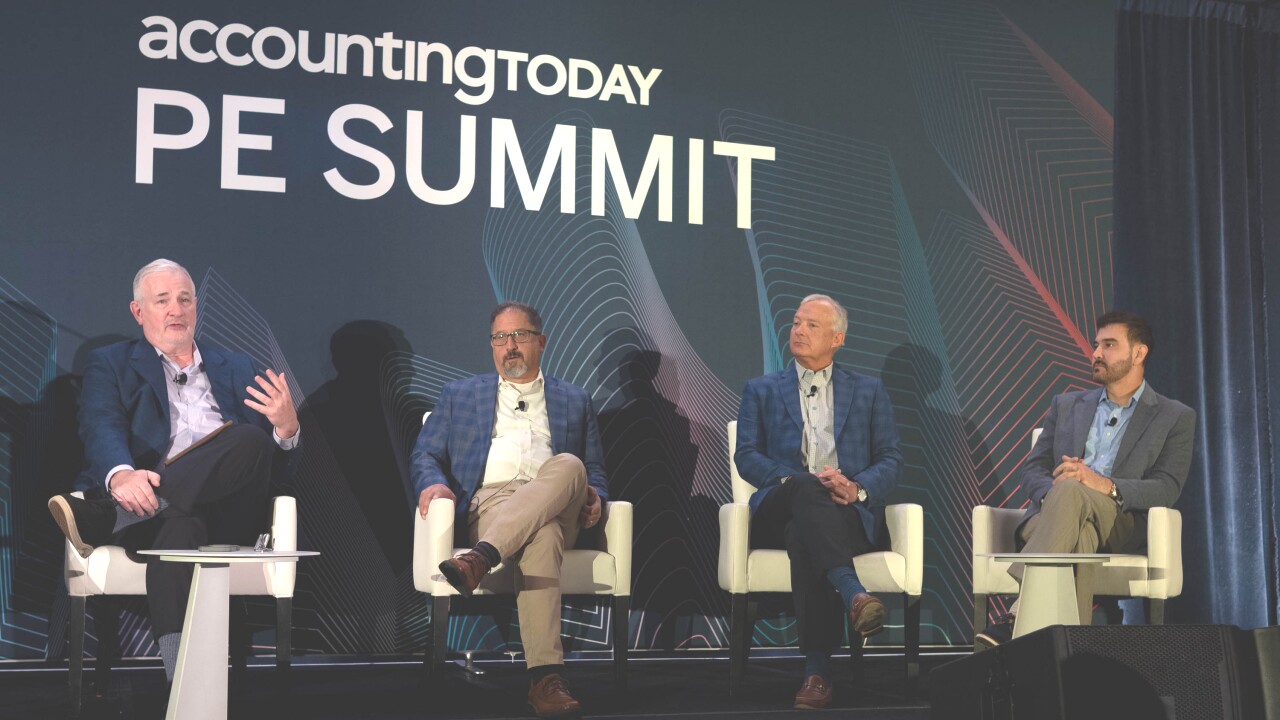Who’s running the firm of 2030?
The answer is the same team that was running the firm in 2020. Reminiscent of the movie “Back to the Future” and “The Time Machine,” we all went to bed on March 16, 2020, and woke up the next day on March 17, 2030, with the same team running the show. The team for 2030 was supposed to be very different, but it’s not. The current team was supposed to be retired, on a beach in the Caribbean — but they’re not. The team has huge challenges in leadership and change management, but also has amazing opportunities in its future.
Jumping into the deep end
The pandemic accelerated everything by a decade to 2030. Like it or not, we’re there — unprepared, uncertain — operating firms that we had planned to take a decade to create, edit, refine and perfect. In a span of literally 24 hours, we were forced to rapidly adapt to a model that we had planned to evolve into over 10 years.
We did not have the luxury of time to develop and acclimate. If we had, because we are an analytic profession, we would have assessed how to do it, weighed the pros and cons, ensured the right people were in place, and made certain we had the systems, protocols and platforms with which to successfully guide our firms through the century’s fourth decade.
Firm of the future
Most of the professionals who are intended to run the accounting firms of 2030 are not even close to being ready. As such, firms are still being run by the 2020 leadership team, a generation of baby boomers that is still struggling to adapt to the millennial invasion and is quite unprepared for this shift. What they aren’t recognizing is that the millennial challenge pales in comparison to what’s ahead.
The success of your firm of the future is your leader’s ability to cultivate a firm that is capable of running successfully in the virtual world.
1. Saying and doing are two totally different things. If your firm is not already virtual, get it there! Sixty percent of firms have said they’re ready. Guess how many actually are?
2. Find your purpose and find it fast. It will set the tone within your organization. As your culture will be challenged by the virtual office, it is an essential component in keeping people tied to the essence of the firm. Think it was difficult to retain good talent pre-pandemic? Imagine how challenging it’s going to be moving forward.
3. Discover your firm’s true calling. Stop being everything to everyone. Accounting is already perceived as a commodity to the masses. Ask yourself, within your offerings, what do you do better than anybody else? Stick with that!
A look at other industries
Consider two organizations that benefited from early adaptation to their respective new models. What they did was to quickly seize on the opportunity, negating the challenge.
During the COVID-19 pandemic, Walmart sales have increased 10 percent as online buy grew 74 percent due to increased demand for grocery pickup and delivery services and the increased use of the strength of the Walmart.com brand. A brand that was once considered unable to compete with Amazon, has.
On March 9, the world-famous Cleveland Clinic had a leadership meeting to discuss impending challenges surrounding COVID-19 and its ability to meet patients’ needs within the health system. Within 72 hours, a plan was created for kickstarting its telehealth program. In the span of six weeks (from March 7 to April 11), total Cleveland Clinic outpatient visits went from 2 percent remote (virtual or phone) to 75 percent remote. Telemedicine visits have skyrocketed from 5,000 a month to 200,000.
Opportunity
The prediction is that, on top of dealing with a health emergency, we are looking at a deep recession. Of course, the recession is related to many industries coming to a halt, record unemployment, and the global impact. I am sure you have heard, “Don’t waste a recession.” What does that mean?
It means there are opportunities and a silver lining. You always have the usual opportunities: Acquire other firms, upgrade talent, eliminate partners who are a bad fit, add new clients, etc. However, this recession will provide two unparalleled opportunities that will only be available to the firms that master the virtual practice.
The first is talent. Prior to the pandemic, most firms only employed professionals and others within their geographic radius. A virtual worker was one who used to work for you before moving out of the area, and who you provided technology to continue working for the firm. Today, why not hire that tax senior out of your immediate area? Clearly, this is a new option for talent.
And what about new clients and growth? In the past, most of your clients were local to your practice. Any reason you can’t spread your client base, niche, etc., to a national platform? Probably not.
Yes. Don’t waste a recession.





